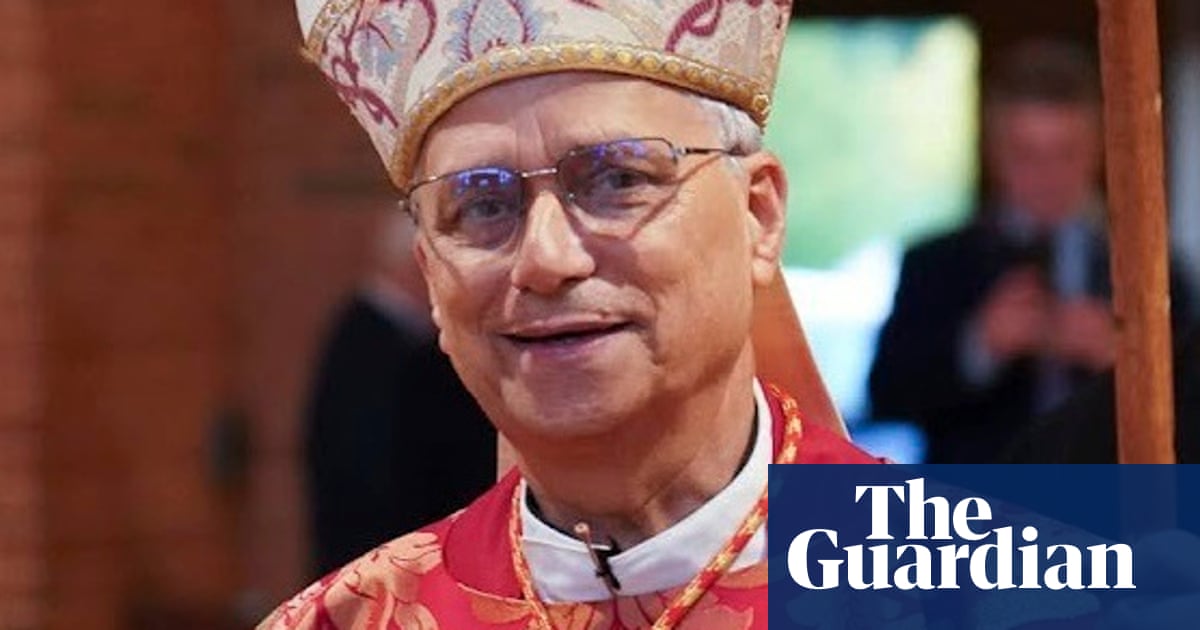Good morning.
Robert Francis Prevost, the first US cleric to lead the Roman Catholic church, has said “evil will not prevail” as he addressed a crowd of 100,000 pilgrims and tourists in his first speech asPope Leo XIVfrom the central balcony of St Peter’s Basilica.
The election on Thursday of Prevost, 69, as the church’s 267th pontiff ended the Vatican’s longstanding opposition to the idea of a pope from the US.
Why choose the name Leo?ThatPrevost has decided to become Leo XIVwill make Catholics think of the previous Leo – Leo XIII – and his 1891 encyclical or teaching document,Rerum Novarum, which outlined workers’ rights to a fair wage, safe working conditions and the rights of workers to belong to trade unions.
What does it mean for LGBTQ+ Catholics?After years of sympathetic andinclusive comments from Pope Francis, LGBTQ+ Catholics expressed concern on Thursday abouthostile remarksPope Leo XIV made more than a decade ago in which he condemned “the homosexual lifestyle” and“redefinition of marriage” as “at odds with the gospel”.
Donald Trump hasannounced he is nominating Jeanine Pirro, the Fox News hostand former state-level prosecutor, as the interim US attorney for the District of Columbia.
The president made the selection after he was forced to withdraw the nomination of Ed Martin, who has been serving in the post since Trump returned to office as he appeared unlikely to be permanently confirmed by the Senate.
Who said they wouldn’t back Martin?Thom Tillis, the Republican North Carolina senator, said he would not support his nomination – and Martin also lacked allies at the justice department.
Why was he unpopular?He was seen as too aggressive with his threats to prosecute Trump’s political adversaries, including Chuck Schumer, the Senate minority leader. Republican senators were concerned about the risk of a Democratic appointee to act similarly in the future.
Where does Pirro stand?She is a diehard Trump ally whosefalse claimthat the 2020 election was rigged by Dominion Voting Systems was used against Fox in court.Fox settled in the defamation case and acknowledged her statements were false.
JD Vance has said the US will not intervene in the conflict between Pakistan and India,calling fightingbetween the two nuclear powers “fundamentally none of our business”.
The remarks came during an interview with Fox News, where the US vice-president said the US would seek to de-escalate the conflict but could force neither side to “lay down their arms”.
What did Vance say?“What we can do is try to encourage these folks to de-escalate a little bit, but we’re not going to get involved in the middle of a war that’s fundamentally none of our business … Our hope and our expectation is that this is not going to spiral into a broader regional war or, God forbid, a nuclear conflict. Right now, we don’t think that’s going to happen.”
Chinese exports to theUS fell by 17.6% in April, even as its overall exports exceeded forecasts,rising by 8.1% annually, official figures show.
The Pentagon is firing the 1,000 members of the military who openly identify as trans,and has told other trans troopswho do not openly identify to stand down within 30 days.
Vladimir Putin has received Xi Jinping and other world leadersas Russia marks the 80th anniversary of the end of the second world warin Moscow, while several Europeanforeign ministers instead visited Ukraine.
Federal prosecutors have launched a criminalinvestigation into New York’s attorney general, Letitia James,who made an enemy of Trumpafter he was ordered to pay more than $450m in penalties after a lawsuit brought by her office.
Liberia is home to more than half of west Africa’s forests – but they are under threat from logging as the world “retreats from international commitments and cooperation”, warns Ellen Johnson Sirleaf, the country’s 24th president. She explains how after the devastating civil war, 60% of the land had been allocated in logging concessions, before her government enacted a moratorium and changed the process.Here’s why she fears things are going backwards.
Eighty years after the end of the second world war, two former Berlin correspondents examinehow the Guardian covered the Nazis. In this podcast, Helen Pidd and Philip Oltermann discuss Frederick Augustus Voigt, the Manchester Guardian’s Berlin correspondent in 1920-32, and his incredible reporting on the rise of Nazi Germany that led to a Gestapo plot to murder him.
In the latest example of Trump’s slashing of resources to understand and deal with the climate crisis, the National Oceanic and Atmospheric Administration (Noaa)will no longer track the cost of weather disastersdriven by the planetary emergency. Since 1980, it has been tracking information on the impact of events including floods, heatwaves, wildfires.
After a difficult relationship breakup,rambling 700 milesfrom the Highlands to Dorset with a donkey called Martin helped restore Adam Lee’s faith in people. But it was no walk in the park. “Very quickly, I realised that walking a donkey around suburban streets does not in any way prepare you for walking across the west Highlands,” he said. “Once, I attempted to take Martin across a bog but he wasn’t having any of it.”
First Thing is delivered to thousands of inboxes every weekday. If you’re not already signed up,subscribe now.
If you have any questions or comments about any of our newsletters please emailnewsletters@theguardian.com
